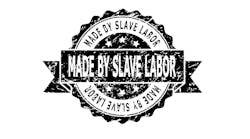California’s statewide ban on most kinds of independent contractors last year sparked a firestorm of criticism that resulted in the state enacting a new law exempting several professions and types of business relationships from its strictures.
You are probably thrilled to learn that among those workers who are now exempted from worse strictures of AB 5 are manufactured housing salespersons, certain individuals engaged by international exchange visitor programs, and competition judges (including amateur umpires and referees).
Some of the other changes are much more substantial, and others are the direct result of outrage expressed by free-lancers or various sorts who saw their livelihoods disappearing. None of the exemptions apply to truck, delivery and ride share drivers, whose inclusion in the original law created some of the biggest pushback.
The AB 5 law, which went into effect on January1, established a three-part “ABC” test for determining whether a worker was to be classified as an independent contractor or an employee, subject to all employment laws, including workers comp and unemployment insurance requirements -- .and the ability to join a labor union
The ABC test holds that to be considered a contractor, the worker must be (A) free from control and direction of the hiring entity in connection with performing the work; (B) perform work outside the usual course of the hiring entity’s business; and (C) customarily engage in an independently established trade, occupation or business.
It is the “B” prong of the test that makes it impossible for many people who traditionally have been considered independent contractors, like truck drivers working for trucking companies, to continue enjoying that status.
Both truckers and rideshare drivers are conspicuously absent from the new law. Rideshare giants Uber and Lyft mounted a public referendum campaign that will put the issue before California votes this November, and the trucking industry succeeded in blocking enforcement of AB 5 while its legality is challenged in federal state courts.
The music industry is very important to the state and it and the musician’s union conducted a full court press to get the law changed not long after it was enacted. Among those now exempt are recording artists, songwriters, lyricists, composers, proofers, managers of recording artists, record producers and directors, musical engineers and mixers, musicians, vocalists, photographers, independent radio promoters and certain types of publicists.
However, musicians and vocalists who do not receive royalties from a sound recording or musical composition must be paid the applicable minimum and overtime wages, as though they were employees.
The new exemption does not apply if they perform as a symphony orchestra, in a musical theater production, at a theme park or amusement park; are an event headliner in a venue with more than 1,500 attendees; or perform at a festival that sells more than 18,000 tickets per day. (I guess that means all those immensely popular K-Pop boy bands are now considered employees, if they weren’t already).
Send in the Clowns
Individual performance artists including comedians, improvisers, magicians and illusionists, mimes, spoken word performers, storytellers and puppeteers who perform original work they created will qualify for an exemption so long as they are free from the hirer’s control, retain the intellectual property rights related to their performance, set their terms of work and negotiate their rates.
A major change is the new law’s clarification that an exemption exists for “bona fide business-to-business contracting relationships” where a contractor is “acting as a sole proprietor, or a business entity formed as a partnership, limited liability company, limited liability partnership or corporation contracts to provide services to another such business.”
The exemption now also applies where a “public agency or quasi-public corporation” has retained the contractor. However, in addition to broadening the availability of the exemption, the new law also extends the application of the ABC Test to individual workers retained by a contractor, with respect to their relationships with both the contractor and the hiring entity.
Another significant change is clarification of the referral agency exemption, which may exempt from the contractor test those working relationships between individuals operating as sole proprietors or business entities and businesses that refer individuals’ services to clients. The change expressly applies the exemption to a non-exclusive list of additional services, including consulting, youth sports coaching, caddying, wedding or event planning, services provided by wedding and event vendors and interpreting services.
The new language expressly provides that the AB 5 ABC Test governs “the determination of whether an individual worker is an employee” of the contractor referred to provide services or is an employee of the client to which the contractor was referred, according to attorneys Scott Mallery, Kerry Friedrichs and Eric Lloyd of the Seyfarth Shaw law firm.
“As with the analogous clarification of the business-to-business exemption, this is a potentially significant addition insofar as it clarifies that the ABC Test is the test for employment vis-à-vis an individual and a business that did not directly retain him or her,” they say.
Subject to the common law test for employment as a result of the new law are content contributors, advisors, producers, narrators or cartographers for certain publications (provided they do not displace existing employees); specialized performers hired to teach a class for no more than a week; appraisers; registered professional foresters; and home inspectors.
The new law also eliminates restrictions in AB 5 that threatened to upend the journalism industry. Many media companies had chosen to fire free-lancers in California rather than risk running afoul of AB 5’s limit on the number of submissions a year that a freelancer could file with one entity. The annual number limit – 35 articles for writers, for example – also applied to still photographers and photojournalists, videographers, photo editors, translators, editors/copy editors and illustrators/newspaper cartoonists.
The new law removes the submission number cap and instead requires that businesses refrain from displacing existing employees in order to utilize one of these types of contractors.
The new law does not exempt several industries that had engaged in extensive lobbying efforts, the Seyfarth Shaw attorneys point out. These include, among others, gig economy companies, franchising, trucking and the motion picture and television industries. They predict, “The 2021-22 legislative session will undoubtedly see these, and other, industries lobbying for additional exemptions,”




